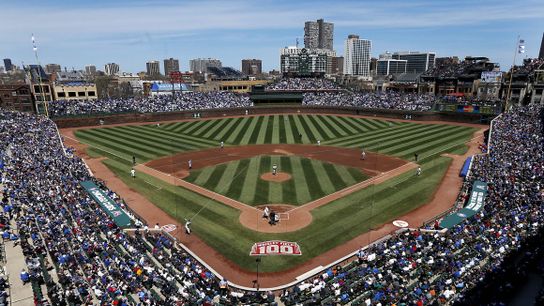Who'd have have ever guessed Florida would be a more popular winter vacation destination than Chicago?
Last month, Brett McMurphy reported the NCAA had approved three new games for the 2020 season -- thereby bringing the overall total to 43, including the CFP title game -- and that, while locations had not bee nailed down, Myrtle Beach and Chicago were "near locks" to join the fun.
The Chicago game would be played at Wrigley Field, pitting the Big Ten against the ACC. Football games at baseball stadiums have been en vogue of late. Yankee Stadium, San Francisco's AT&T Park, Tampa's Tropicana Field, Phoenix's Chase Field and Miami's Marlins Park either currently host or have hosted bowl games recently. Fenway Park hosted a Notre Dame-Boston College game in 2016, hosted three more in 2017 and will host the Harvard-Yale game this fall. Wrigley Field hosted the Illinois-Northwestern game in 2010, a game that famously had to be altered where both teams marched toward the west end zone because the east end zone was unsafe.
While the Big Ten is expected to end its affiliation with San Francisco's Foster Farms Bowl after the 2019 season, Chicago Cubs officials had their eyes higher than that.
According to Teddy Greenstein of the Chicago Tribune, Chicago Cubs officials wanted to jump the Foster Farm Bowl's spot from No. 8 in the rotation to No. 3 or No. 4. This means, depending on the given year, the Wrigley Field Bowl would be on par with the trio of Florida-based bowls in the Big Ten's rotation: the Citrus, Outback and Gator.
Reports Greenstein:
When Big Ten officials queried schools, the response was that they’d prefer a warm-weather destination.
So Big Ten schools weren't exactly jazzed to send their players to a game that required their players play on a field that was not big enough to hold a football game and their fans to sit outdoors in sub-freezing temperature in one of the windiest cities in America? Who could have ever seen this coming?
According to US Climate Data, the average low for a January day in Chicago is 18 degrees. The average January low in Tampa is 52 degrees, with a high of 70.
